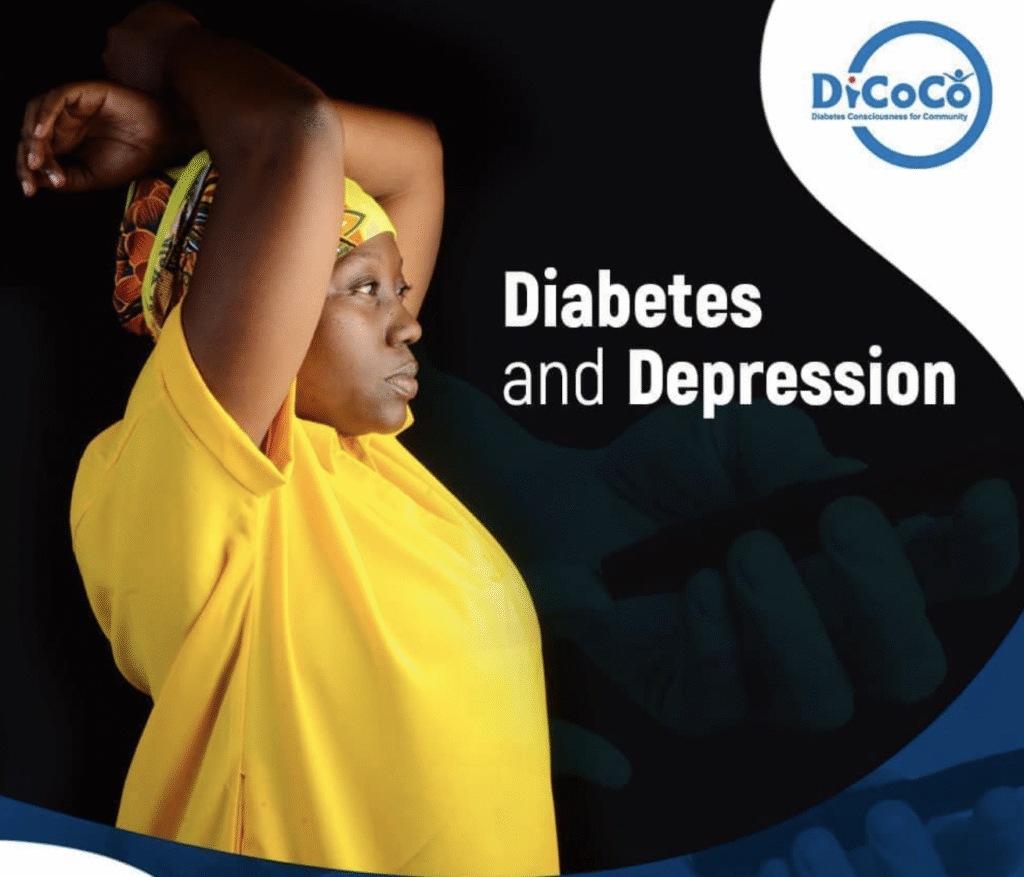
Living with diabetes is not just about controlling your blood sugar. It’s about living with a condition that affects every part of your life – your body, your mind, your emotions, and your relationships. But one thing that is often ignored – yet so important – is the connection between diabetes and depression.
At DiCoCo (Diabetes Consciousness for Community), we have seen this reality through the stories of many people living with diabetes. Some talk about the physical challenges – the needles, the medicines, the dietary restrictions. But many also talk about feeling emotionally drained, hopeless, anxious, or overwhelmed. Sadly, most of them suffer in silence.
It’s time we change that. It’s time we talk openly about diabetes and depression.
What Is the Link Between Diabetes and Depression?
Did you know that people living with diabetes are two to three times more likely to experience depression compared to those without diabetes? This is not just a theory — it’s backed by research and real-life experiences.
Diabetes is a lifelong condition that requires constant management. Checking your blood sugar, taking medication, watching what you eat, being careful with exercise – it never ends. It can feel exhausting. On top of that, there’s the fear of complications: vision loss, kidney problems, amputations – the list goes on.
All this can lead to emotional burnout. Over time, many people start to feel:
- Hopeless or helpless
- Constantly tired, even after sleeping
- Uninterested in things they used to enjoy
- Withdrawn from family or friends
- Struggling with low self-esteem
- Thoughts like, “I can’t do this anymore”
These are not just “bad days.” These can be signs of depression, a real medical condition that deserves attention and care.
Why Does Depression in Diabetes Often Go Unnoticed?
In many communities, including here in Tanzania and across Africa, there’s still a lot of stigma and misunderstanding about mental health. Some people believe depression means you are weak, or you don’t pray enough, or you’re simply “overthinking.”
But depression is not about weakness. It is a health condition that affects the brain, just like diabetes affects the body.
For people living with diabetes, depression often hides behind other symptoms. Feeling tired? Maybe it’s the diabetes. No energy? Blame the blood sugar. Losing weight? It could be the medication. Because of this, many cases of depression go undiagnosed and untreated.
How Depression Affects Diabetes — And Vice Versa
The relationship between diabetes and depression is like a vicious cycle.
👉 Depression can make it harder to manage diabetes. You might lose motivation to check your blood sugar, forget medications, or stop caring about healthy eating.
👉 Poor diabetes control can make depression worse. High blood sugars affect your mood, energy, and confidence.
👉 Together, both conditions can lower your quality of life, making you feel trapped, overwhelmed, and alone.
But it doesn’t have to be this way. With the right support, both conditions can be managed.
What Can We Do?
1. Break the Silence
We need to start talking openly about mental health. Depression is common, real, and treatable. There’s no shame in struggling — but there is danger in suffering silently.
2. Screen for Depression in Diabetes Clinics
Healthcare providers should make mental health checks part of routine diabetes care. Simple questions like, “How have you been feeling emotionally?” can open the door to lifesaving conversations.
3. Educate Families and Communities
Families play a huge role in supporting people with diabetes. But support isn’t just about reminding someone to take medicine — it’s also about being there emotionally. Listen without judging. Encourage without blaming.
4. Promote Self-Care Beyond Medication
Managing diabetes is not only about insulin or diet — it’s also about taking care of your mental health. That can include:
✅ Gentle exercise, like walking or stretching
✅ Talking to a trusted friend, family member, or counselor
✅ Joining a diabetes support group
✅ Practicing relaxation techniques like deep breathing
✅ Celebrating small victories — every blood sugar check, every healthy meal counts
5. Push for Policy Change
Mental health is often ignored in public health policies. We need to advocate for:
✅ Mental health services in primary healthcare settings
✅ Community awareness programs to fight stigma
✅ Training for healthcare workers on emotional support
✅ Affordable access to both diabetes and mental health care
You Are Not Alone
If you are living with diabetes and struggling emotionally, know this: You are not weak. You are human. Diabetes is tough — and it’s okay to feel overwhelmed. But there is hope, and there is help.
At DiCoCo, we are committed to making sure no one feels alone in this journey. We believe in a future where diabetes care includes emotional care, where depression is not hidden, and where every person living with diabetes can live fully — body, mind, and soul.
Let’s Talk. Let’s Support. Let’s Act.
💙 Together, we can break the silence around depression and diabetes.
💙 Together, we can build a healthier, more compassionate community.
💙 Together, we can live well — even with diabetes.
